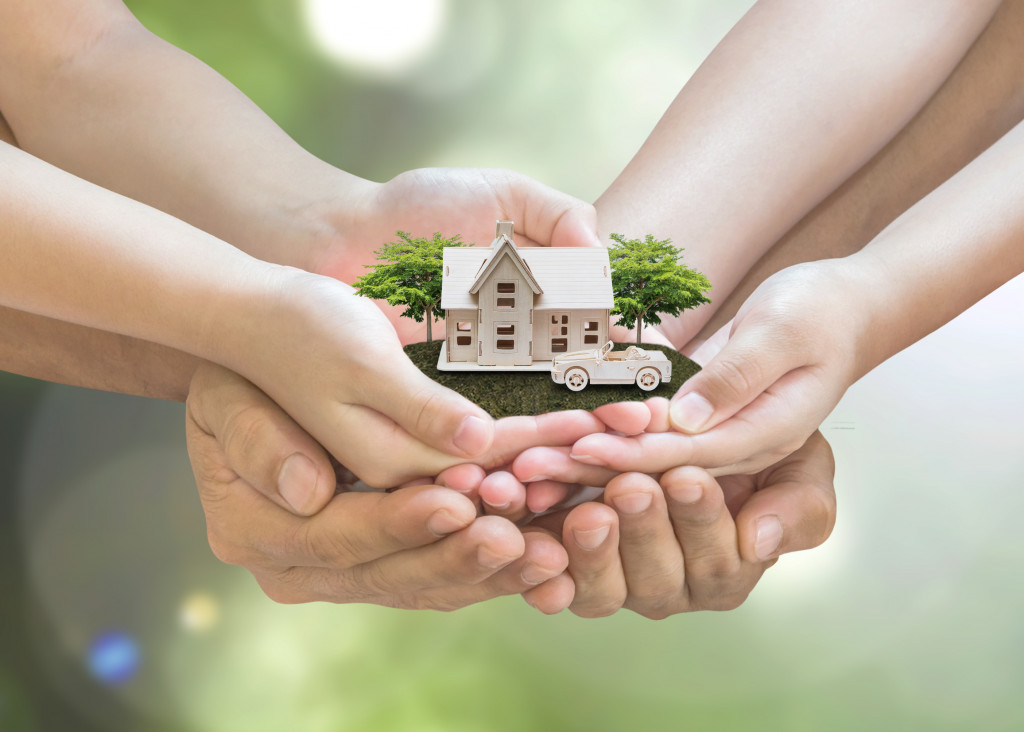The real estate industry is an integral part of our society; it helps to build and sustain communities. From buying and selling homes to constructing buildings and apartments to providing rental housing for people who might not be able to purchase a home, the real estate industry plays a critical role in helping communities thrive. Let’s explore why the real estate industry is vital for building communities.
The Benefits of Homeownership
Homeownership has been linked to numerous positive outcomes, including financial stability and increased net worth. Homeownership is also associated with better health outcomes, such as improved mental health due to having more control over one’s living environment and increased physical activity from having access to outdoor spaces.
Additionally, homeowners are more likely to participate in civic activities such as voting or volunteering because they tend to have deeper ties to their local communities than renters do. All of these benefits contribute to healthier, more connected communities overall.
Owning a house does not necessarily mean paying the total sale price up-front. Home buyers often consult trusted mortgage loan lenders to help them finance their homes, and this process can also be incredibly beneficial for communities. Mortgage loans are essential to creating a stable housing market by making homeownership more accessible. This helps support economic growth and increase property values in neighborhoods.
Commercial Real Estate Development
Commercial real estate development is essential for many reasons. It provides jobs in construction and related industries while also creating spaces for businesses and entrepreneurs that can generate revenue for the local economy.
It also increases a community’s tax base, which helps fund schools, public services, cultural events like festivals or music concerts, transportation infrastructure, and other activities that help bring people together.
Commercial spaces like office buildings also create new opportunities for residents by providing employment opportunities; retail stores provide goods or services needed by the community; restaurants offer dining experiences that can bring people together; entertainment venues provide places where families can enjoy quality time together, etc.
In addition, commercial real estate development is often linked to the revitalization of blighted neighborhoods, which can lead to improved public safety, better access to quality education and healthcare facilities, and more investment in local businesses. All of these factors contribute to stronger, vibrant communities.
Renting & Affordable Housing

In addition to homeownership and commercial development, the real estate industry provides another critical service—rental housing options for those who cannot buy a home due to financial constraints or other life circumstances (e.g., young adults just starting out).
Rental housing is critical when there aren’t enough affordable homes available on the market due to lack of supply or rising prices due to high demand; it allows individuals and families who cannot afford a home at this time still have access to decent housing options until they can save up enough money for a down payment on a home in the future.
Moreover, renting can be beneficial if someone needs flexibility regarding their living arrangements (e.g., if they need/want to move frequently). Therefore, rental housing is essential for providing stability in our society by allowing people access to safe housing options regardless of their current situation or income level at any given time.
Providing Resources
The real estate industry also provides resources to landlords and tenants. Landlords can use services such as property management companies or legal advice. At the same time, tenants can access organizations that provide information on tenant rights and regulations, support housing issues, or dispute resolution services. This helps create an environment of mutual respect between landlords and tenants and builds trust between the two parties.
In addition, many real estate companies offer resources to both homeowners and renters, such as financial advice, home maintenance tips, or local programs for low-income households. These resources are invaluable in helping people maintain their homes and living arrangements safely and securely.
Contributing to the Local Economy
Finally, the real estate industry is a major contributor to the local economy. The taxes paid by both homeowners and landlords generate revenue for essential services like public schools, roads and highways, police and fire departments, libraries, etc., as well as providing jobs for people in the construction industry. This helps ensure that communities are able to thrive economically.
In conclusion, the real estate industry plays an important role in the development of our communities. It provides housing and commercial options for both homeowners and renters; offers resources to landlords and tenants alike; helps revitalize blighted neighborhoods; generates revenue through taxes; and creates jobs in the construction industry.
The Bottom Line
In conclusion, the real estate industry plays an important role in helping build strong communities by providing homeownership opportunities that promote financial stability, creating new jobs and stimulating economic growth, revitalizing blighted neighborhoods, and providing rental housing options that allow people to have access to decent housing regardless of their current circumstances or income level. All of these factors are essential for creating vibrant, thriving communities where residents can work together to build a better future for themselves and their families.




